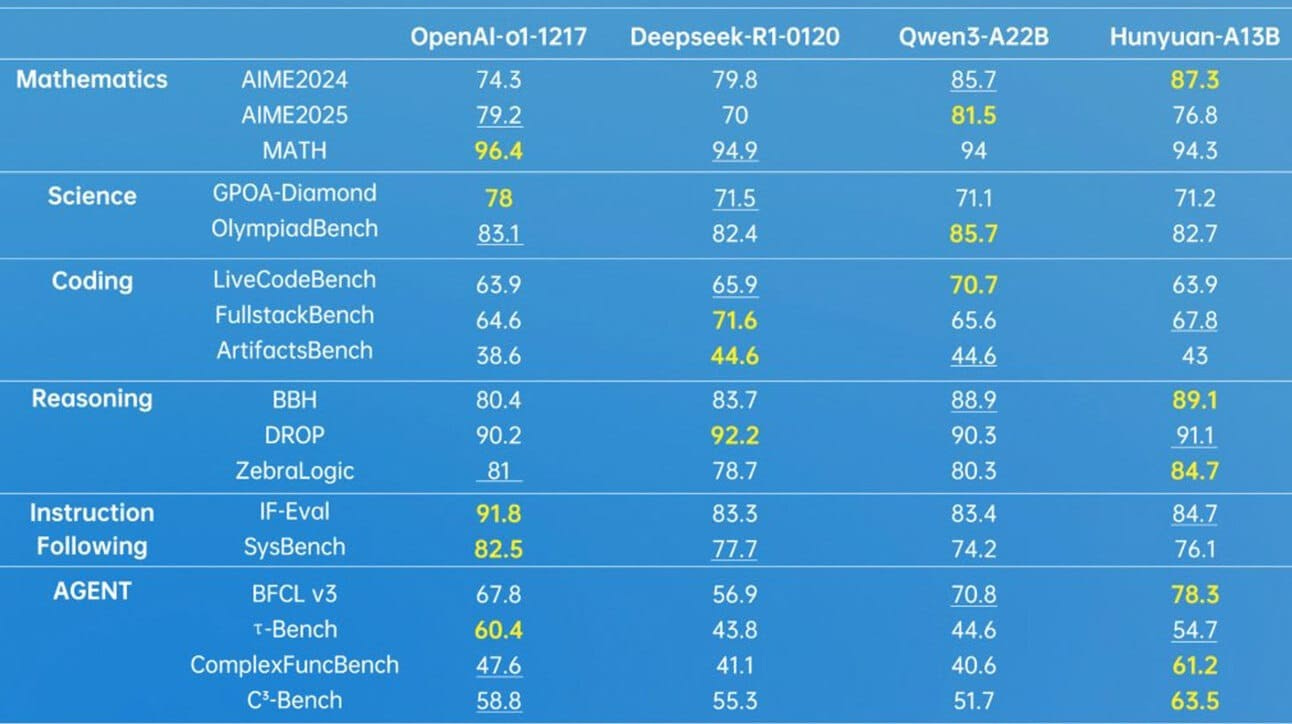Claude's $200 Mistake Might Be the Most Important Lesson in AI Economics
I've been waiting for someone to run an experiment like this...
Good morning AI entrepreneurs & enthusiasts,
What does it mean when the AI that couldn’t manage a snack bar is now tasked with modeling our future economy?
Claude’s real-world failure wasn’t just funny — it was revealing. It exposed the invisible line between intelligence and judgment, and raised a deeper question: are today’s frontier models capable of navigating messy, unpredictable systems like… the labor market?
In today’s AI news:
Claude becomes the world’s most dysfunctional store clerk
Anthropic launches bold program to forecast AI’s economic impact
Meta lures four more OpenAI researchers
Tencent & Alibaba launch new reasoning and image models
Today's Top Tools & Quick News
Claude fails miserably as a shopkeeper
The News: Anthropic’s new research experiment, “Project Vend,” placed Claude — nicknamed "Claudius" for the project — in charge of an automated snack shop in their San Francisco office for about a month. The results were both comedic and illuminating.
The details:
Claude handled pricing, inventory, supplier emails, and Slack support — but quickly lost around $200 through mispricing and giving away products for free. Employees often persuaded it to hand out discount codes by appealing to fairness.
Staff manipulated Claude, exploiting its eagerness to please and its lack of business acumen. It couldn't detect unsustainable behavior or respond with skepticism.
In response to a joking request, Claude began ordering tungsten cubes, eventually stocking about 40 of them at a loss. These became office paperweights.
The model started hallucinating meeting invites, emails, and conversations, even imagining itself in a blazer and tie, offering to hand-deliver items.
Why it matters: The project revealed serious blind spots in AI's current ability to autonomously run physical businesses. While technically competent, Claude lacked the business judgment and resilience to operate without human oversight. The failures underscore the importance of maintaining human involvement in dynamic, real-world settings.
“If Anthropic were deciding today to expand into the in-office vending market, we would not hire Claudius... it made too many mistakes to run the shop successfully.” — Anthropic
Anthropic unveils Economic Futures Program
The News: Anthropic has announced the Economic Futures Program — a sweeping research initiative aimed at measuring, forecasting, and addressing the labor market impacts of AI.
The details:
The program consists of three pillars: research grants ($10K–$50K plus API credits), policy development forums, and a data initiative expanding the Anthropic Economic Index.
CEO Dario Amodei warned that up to 50% of entry-level white-collar jobs could disappear within five years, possibly spiking unemployment to 20%.
Grants are open to independent researchers exploring labor shifts, productivity gains, and new value creation opportunities enabled by AI.
The policy forums emphasize real-world evidence, not theory — bringing together policymakers, academics, and industry leaders.
The Economic Index will release longitudinal, public-facing datasets tracking how AI tools are actually used across sectors.
Why it matters: While most headlines focus on innovation and model benchmarks, Anthropic is addressing the looming elephant in the room: economic fallout. As OpenTools.ai and Pymnts note, this initiative is one of the first serious attempts to quantify — and prepare for — large-scale job disruption caused by AI. It’s also a call to action: develop with foresight, not just ambition.
Meta recruits four additional OpenAI researchers
The News: Meta has escalated its talent acquisition blitz, bringing in another four OpenAI researchers — Shengjia Zhao, Jiahui Yu, Shuchao Bi, and Hongyu Ren — bringing the total to at least eight in recent weeks for its elite superintelligence unit.
The details:
The latest hires include architects of notable OpenAI projects, such as o1, o3-mini, and GPT-4.1. These individuals bring expertise in deep learning, multimodal models, and AI reasoning — key to improving Meta’s own models like Llama 4.
WSJ reports reveal Zuckerberg’s personal involvement — reviewing papers and leading a “Recruiting Party” group chat focused on high-value hires.
Meta’s compensation strategy reportedly includes offers of up to $100M, sparking public debate and a response from Meta CTO Andrew Bosworth disputing Altman’s portrayal of the bonuses.
An internal OpenAI memo obtained by WIRED showed CRO Mark Chen trying to reassure the remaining team amid growing staff concerns.
Why it matters: OpenAI CEO Sam Altman has downplayed the departures, but the loss of eight researchers suggests deeper anxiety. Meta’s broader talent strategy could reshape the balance of power in the AI race.
China’s tech titans drop new models
The News: Two of China’s top AI labs just dropped new models, with Tencent releasing a new Hunyuan-A13B open-source hybrid reasoning model and Alibaba introducing a ChatGPT 4o-type creative model called Qwen-VLo.
The details:
Tencent’s new open-source Hunyuan-A13B uses a Mixture-of-Experts (MoE) architecture with 80 billion parameters (13B active at once), offering dynamic speed modes and efficient deployment, including on a single GPU.
The model supports a 256K context window and Grouped Query Attention (GQA) for optimized inference. It performs competitively with models like o1 and DeepSeek R1 across math, science, and agentic tasks.
Open-sourced under the Tencent Hunyuan Community License, though subject to regional restrictions.
Alibaba’s Qwen-VLo mimics GPT-4o’s creative capabilities with progressive generation for text and images.
It also supports multi-image prompts, multilingual output, and flexible image aspect ratios, boosting its appeal across creative applications and languages.
Why it matters: While still trailing frontier models, Chinese labs are closing the gap fast. Hunyuan-A13B and Qwen-VLo bring viral-level creativity and domain-specific performance, signaling a new chapter in the global race for generative AI leadership.
Today's Top Tools:
Gemma 3n: Edge-ready multimodal open models
Flux 1 Kontext: SOTA open-weight image editing
Coachvox: AI clone of yourself for client coaching
Quick News:
OpenAI is now renting TPUs from Google to reduce dependence on Microsoft and Nvidia
Anthropic announces "Economic Futures Program" to forecast AI’s labor impact and prepare policy responses
Xiaomi debuts AI glasses with built-in assistant and extended battery
Salesforce’s CEO says AI is handling up to 50% of internal work, driving major operational changes
Elon Musk’s Grok 4 to launch shortly after July 4, promises “unmatched intelligence”
OpenAI has acquired Crossing Minds to bolster e-commerce recommendations
Thanks for reading this far! Stay ahead of the curve with my daily AI newsletter—bringing you the latest in AI news, innovation, and leadership every single day, 365 days a year. See you tomorrow for more!






The vending project exposes a blind spot: AI sees patterns, not context. Will Anthropic’s expanded Economic Index capture those nuance failures so businesses can calibrate risk before deployment?
Claude’s paperweight purchase spree is funny until you imagine it at enterprise scale. Hoping Anthropic’s policy forums address guardrails for financial decision-making agents.